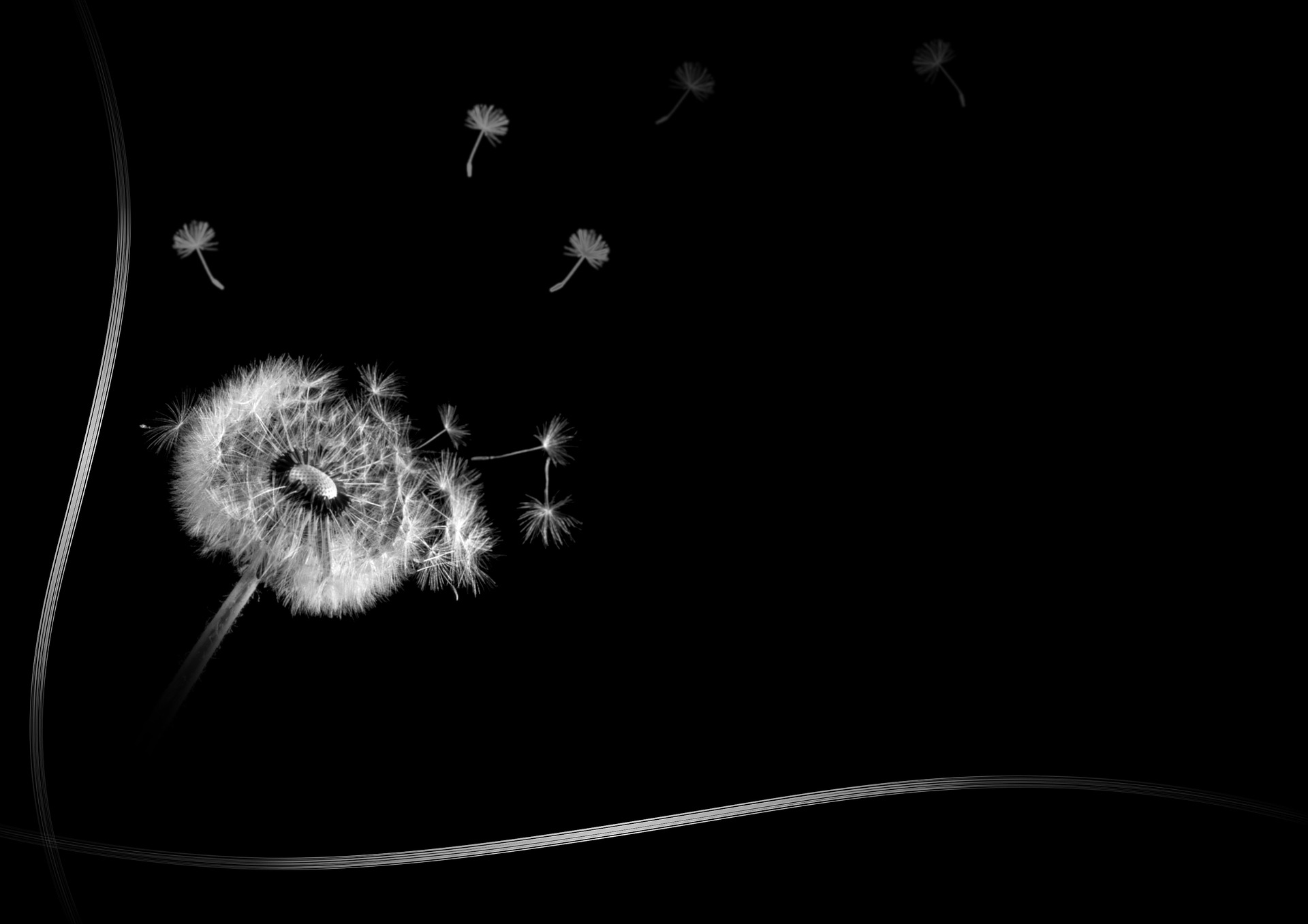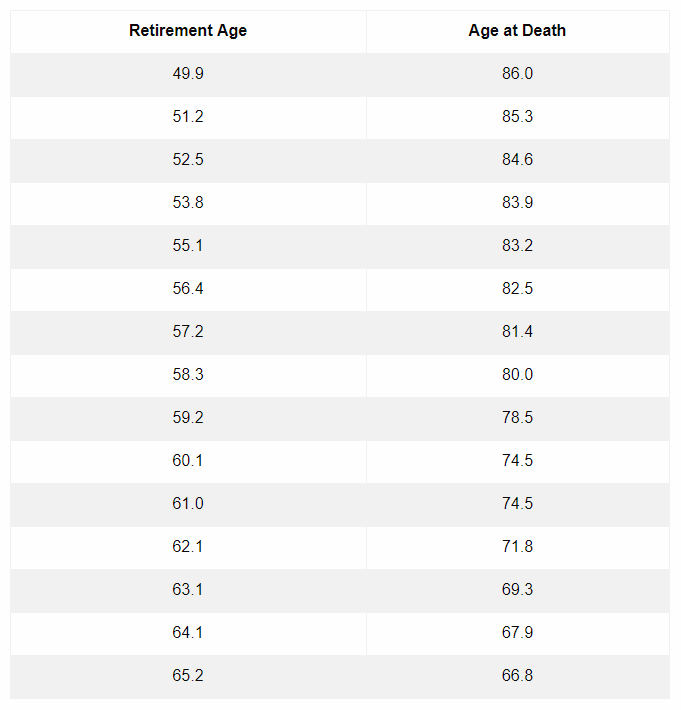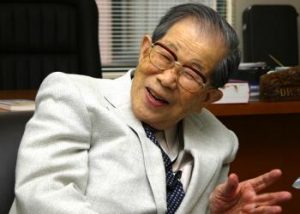I'll probably die young because I retired early; or, maybe I won't?

Depending on who you ask, I'll probably die young because I retired early.
If you're a data-oriented person, you're probably familiar with the array of studies that supposedly prove that early retirees are statistically more likely to die early.
The Huffington Post said that early retirement might be the kiss of death. A study published in Medpage Today said early retirement might cause early death. A Cornell study found a "striking link" between early retirement and an early death.
Sounds pretty bad, doesn't it? Guess I should have kept my job after all. But, wait. That's not the whole story. It rarely is.
Other studies, like this one published by Forbes, found that early retirement could help us to live longer. A study published by CNBC suggested that early retirees live a longer life. And, here's a table with a bunch of numbers from a dude who had too much time over a weekend that seems to indicate early retirees live longer lives.

Guys, I'm so confused. Which is it? Am I dying young, or living longer?
Here is the problem with all of these studies, regardless of what they supposedly prove. Even with all their numbers, their findings only provide raw, relatively unintelligent conclusions. All of them fail to answer the question of "why". If early retirees do die early in some studies, why?
Is it because health concerns caused them to retire early in the first place? Did they retire to nothing, whereby sending them to a barren and unproductive existence void of meaning and purpose?
These studies ignore a critical element to the equation of early retirement.
It's not about *when* we retire; it's about what we do once we get there
Here's the bottom line: I don't care about the numbers. I don't care about their sample size, who was included or what each person's general health was in those studies. No shits given about those things. They are unimportant.
Why? Because to draw any intelligent conclusions from these studies, we need to re-focus our attention not on the numbers alone, but on that circular blob of gooey flesh that rests comfortably within our skulls.
That's right, our minds.
Does the name Doctor Shigeaki Hinohara mean anything to you? Last year, 105-year-old Dr. Hinohara died after making a life-long and significant impact to Japanese healthcare. Particularly, he studied longevity. In other words, what makes us humans live longer?
In 2009, he spilled the most critical elements of living a happy and healthy life to Japan Times, and it's incredible how similar his findings are with the bulk of the early retirement community.
And, it's these findings - and, in general, a focus on living a happy and productive life post-retirement, that is most important in life longevity.
Dr. Hinohara's guide to living long and happy

Let's take a look at some of Hinohara's primary elements of living a hell of a long time while maintaining a happy and productive life. The guy lived to 105, so he probably knew a thing or two about, well, living.
How close is your life to his findings?
Energy comes from feeling good, not from eating well or sleeping a lot.
In other words, don't focus too heavily on what you should be doing. This doesn't mean we should purposely deprive ourselves of sleep. Naturally, that's stupid. Instead, focus on how you feel and do what feels natural to you. These insipid one-size-fits-all standards and procedures won't necessarily work well for everyone.
All people who live long — regardless of nationality, race or gender — share one thing in common: None are overweight.
For breakfast every day, Hinohara drank a cup of Joe, a glass of milk and some orange juice with a tablespoon of olive oil in it. Believe it or not, lunch consisted many times of milk and cookies (when he ate lunch), and dinner was primarily veggies, fish and rice - with the occasional cut of lean meat.
I'm pretty darn close to this, though I'd love to start trying that milk and cookies lunch regimen. Breakfast for me is nothing but a cup of coffee before I hit the gym. Lunch is generally a leftover from the night before, which generally consists of lots of veggies in a homemade sauce. Sometimes, meat. Lots of cauliflower, too. Sometimes, we'll exchange rice with cauliflower rice. Dinner is the same as lunch because my lunches are dinner's leftovers. :)
Always plan ahead.
Okay, I totally suck at this part, though my wife more than makes up for my shortcomings in this area. I fly by the seat of my pants, free-wheelin' it as far as momentum will take me. I do admit that I could proooooobably use better planning skills, but that's why our marriage works so damn well. She picks up the slack where I leave a lot to be desired.
There is no need to ever retire, but if one must, it should be a lot later than 65.
Wait, what? Never retire?
No, that's not what Dr. Hinohara means. What I believe he means is...never retire from being productive regardless of whether or not that productivity originates in a traditional office or from a full-time job. We need a purpose in our life, and if you can find genuine purpose without holding down a full-time job, then you're very much like me. And my wife. Our jobs were critical during the accumulation phase of our life, but now we're on to the next phase.
Share what you know.
Hmm...I try to do that on the blog and through discussion forums. I also did a question and answer post as well as spilled the beans in an FAQ.
Don’t be crazy about amassing material things.
Got that one covered. Like a blanket over a tennis ball. Like, hard-core covered to the extreme. My wife and I sold both of our homes and about 90% of our worldly possessions and bought a 30' Airstream, named Charlie, in which we travel the country. We live in 200 square feet and it's plenty of space for both of us to feel productive and happy. Neither of us cares about material possessions any longer.
Life is filled with incidents.
I love this one the most. Life is nothing but an endless series of situations. Of experiences. We generally go from one to the next without a passing thought. But, maybe we should think more about these "incidents". Enjoy as much as we can the situation that we're in. After all, don't we early retirees clamor on and on about experiences rather than things?
Yup, because there's incredible wisdom in that philosophy. Slow down, take stock of each incident and enjoy whatever it is you're experiencing in life. If you can't enjoy it, do something else.
Find a role model and aim to achieve even more than they could ever do.
I've had several role models in life, and each time, I wanted to achieve at least as much as that person did. Though I never outwardly acknowledged a desire to outdo that other person, achieving a level of happiness that is on-par was always my goal. I understood that not everything will turn out the same way, even if I did everything in exactly the same fashion. Our lives are not made up of repeatable binary code. Shit doesn't work that way.
Am I going to die early?
Personally, I have no idea. But, I do think that my wife and I are doing fairly well with matching our lifestyle with Dr. Hinohara's findings. Without a purpose in life, you're doomed whether you have a full-time job or not. I understand that a job can force a purpose on you, but that's not the same as genuine purpose. Something you naturally feel both inside and outside a job.
How about you guys? How close does your lifestyle match with Hinohara?